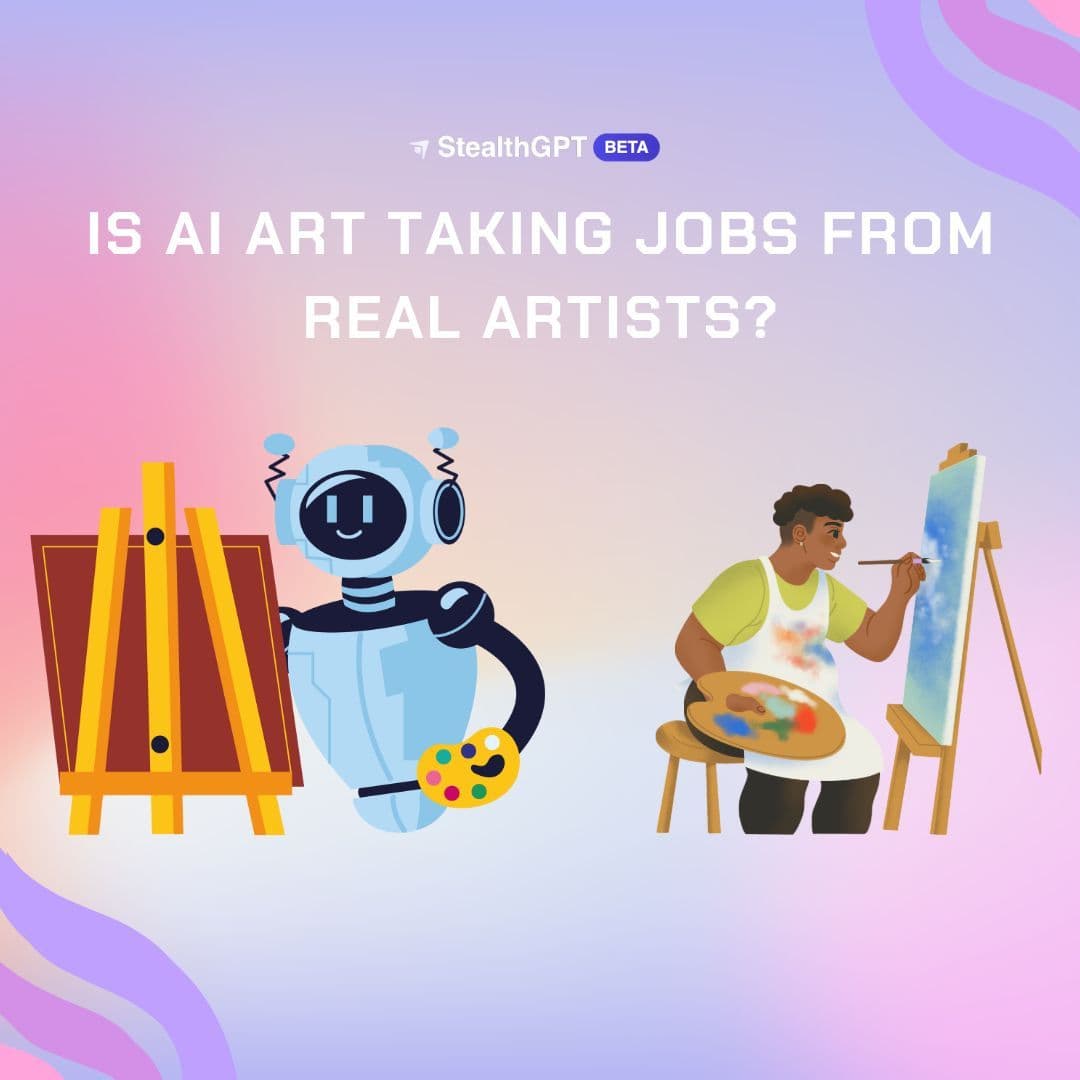Blog, Editorial
Is AI Art Taking Jobs From Real Artists?
Is AI Art Taking Jobs?
The last time you used AI image generation, did it ever cross your mind--"gee, am I stealing someone else's job?" I know it sounds funny, but just because you weren't willing to hire someone to make a Studio Ghibli version of your facebook profile picture, doesn't mean that AI image generator isn't changing the future for artists hoping to find creative work.
Many thought AI art would contribute to creative fields in a totally separate lane from traditional human artists. However, it seems that artificial intelligence and AI generated art are already replacing humans in a variety of industries.
Massive layoffs in the entertainment industry confirm predictions that creative fields are transitioning towards AI. As of now, 62,000 jobs were already disrupted AI with a report expecting at least 204,000 more jobs to go.
Some of these creative fields with start using AI as a partner to a creative lead, to ensure the human touch stays intact. However, even that AI use case promises to downsize creative teams and amount to AI stealing potential job opportunities.
If you're an artist, not all hope is lost. Art jobs under threat of job displacement are limited to certain fields, those fields though, were once very lucrative for human artists.
Industries Choosing AI Art Over Human Artists
Already in China, video game companies are using AI to replace the jobs of illustrators. As far back as 2023, video game companies were using DALL-E and Stable Diffusion instead of concept artists. In some instances, generative AI art was used for in-game assets, while in others, the AI took on the role of art director to design marketing materials.
Advertising is another industry where the integration of art has only begun taking the jobs of graphic designers that could've been creating digital art. Survey Monkey now reports that 50% of marketers are using AI art.

ChatGPT-4o was such a vast improvement from previous models, able to generate accurate text depictions from prompts like never before, that AI tools suddenly became viable in marketing like never before. Now using AI to create infographics or social media images is commonplace.
As mentioned before, the film industry has seen a wave of job displacement thanks to AI. These job opportunities ranged from post-production work like CGI, to pre-production jobs in scriptwriting. Warner Brothers is using AI to refine scripts using audience analysis data to ensure every scene is optimized to audience tastes. These integrations may not have cut out an entire creative team from the process, but a few players have seen their roles replaced by AI.
Interior Design is another industry where human-AI collaboration is becoming mainstream. Enhanced visualization gives both designer and client a chance to see a vision come to life before spending a dime.
Use our Free AI Detector to check your content
Your Text
AI Detection Score
Run a standard or enhanced scan to check your text for AI.
Results will appear here
AI writing isn't limited to students using it for essays anymore. Today, writers are using AI chatbots as writing coaches to pinpoint the weak parts of their books, scripts, or even poems and then get help fixing them.

The rise of collaborative AI use may not be taking the full place of an artists work, but it is allowing creative leads to downsize their teams.
Is AI Art Taking Jobs From Real Artists?
Art generators may be making big waves in many creatives industries but the fine art world still revolves around human creativity. This begs the question, what is a real artist anyway?

Beyond someone with the talent to draw, write, or film something and make money with that talent, artists were once considered people able to derive new ideas and meaning from the world.
The rise of AI art has changed the way humans think about art but it hasn't really developed our understanding of the human condition, which is what the point of art truly is.
As long as the only way to train AI is using existing data, then it will be insufficient in brainstorming the ideas that really change the world. Perhaps when artificial general intelligence is accomplished and AI starts thinking like humans, then we'll see if AI can take the place of a real artist.
So yes, AI is taking jobs and downsizing creative teams in almost every creative field except for the fine art world, where a single human painter or sculptor still has irreplaceable value to collectors.
Just remember, if you identify as a real artist, making meaningful messages with your art that pushes the boundaries of human expectation and familiarity, then AI can take your job but not your role.

